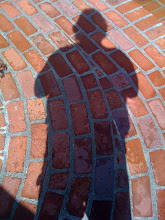

Its no secret that seeds are propagated in many instances by animals. Seeds that have a sticky exterior (burrs) hitch hike on an animal’s fur and fall off later . This, by the way proved to be the inspiration for the invention of Velcro. Other animals who hunt and hide seeds as a food source sometimes forget their stores and germination takes place. And of course there are the seeds that are eaten and sown around in the animal’s droppings, known by the experts as endozoochory, If you have ever been in the way of a falling bird dropping, you may have discovered as you cleaned the mess from your hair the presence of seeds.
All this leads to the events on a Friday afternoon that have resulted in what appears to be somewhat of a mitzvah. Meet Simon. Simon is an eight-year-old Beagle that my daughters purchased as a puppy and as he reached adult hood they promptly move to the opposite coast. No matter. Simon’s list of annoying “dog things”, that include the usual howling, wanting to walk when it’s cold, raining, or the middle of the night , is topped by Simon’s voracious appetite. I don’t really think he’s hungry, I think he has an obsession for ingesting things. Thankfully food tops the list. A pumpkin pie, a sack of flour, countless loaves of bread that were left just a inch too close to the edge of the kitchen counter, and once easily his own weight in an organic bread dough that was attempting to rise. Disgustingly he has the occasional bout of coprophagia and once he ingested (and eliminated, in perfect condition) a ladies thong underwear. So it was no surprise to me when I discovered that Simon had eaten a pound of wildflower seeds. Because it matters for my story it broke down to eight ounces of California Poppy (Eschscholzia californica), four ounces of Mountain Garland (Clarkia unguiculata), and four ounces of the delicious Farewell to Spring (Clarkia amoena.) As these were special ordered and cost $56.00 Simon was banished to the great outdoors of the garden in Toluca Lake. Bad dog! Later that afternoon, all was forgiven and Simon was allowed back in the house, after several hours of banishment and drinking an inordinate amount of water. As I settled in to attack past issues of The New Yorker, Simon promptly entered the den, stopped, looked at me with his soulful eyes and vomited up a neat pile of the wildflower mix. Bad Dog! Back to the garden.
Now I should mention that this banishing to the garden cannot possibly register as punishment. There’s, squirrels, plenty of water, and it is Southern California. Nevertheless like sending a child to their room, it felt good.
I wanted to hurry back in to clean up the mess in the den so I nearly missed six very neat piles of seeds that Simon had deposited on the pebbles and mulch of the garden. As I hosed the deposits into the earth I thought about animal seed dispersion and realized that Simon had shown me one I hadn’t considered. Via puke.
Now recall that Simon really isn’t hungry, in fact he wants for nothing. He ate the seeds because there were , well, eatable. Animals who regularly ingest seeds and disperse them gain nutritional value from the outer husk of the seed as it travels the fantastic voyage of their digestive tracts. Not Simon, no time for that. Just in the stomach, a quick mix with his stomach juices and out. My findings? Well I must say Simon’s seeds germinated quickly. It usually takes these particular wildflower seeds at least 45 days to start upward. Simon’s germinated in less than a month. Do Simon’s stomach juices (is that bile?) provide some kind of agent that breaks down the outer husk of the tiny seeds, thus making for quicker germination? At this point Simon’s seeds are much more immature than the seeds I dispersed (by hand!) and certainly smaller than one ones that are regular inhabitants of the garden. I will keep a watch on these vigorous shoots and report back if Simon’s seeds out perform the traditional.


No comments:
Post a Comment